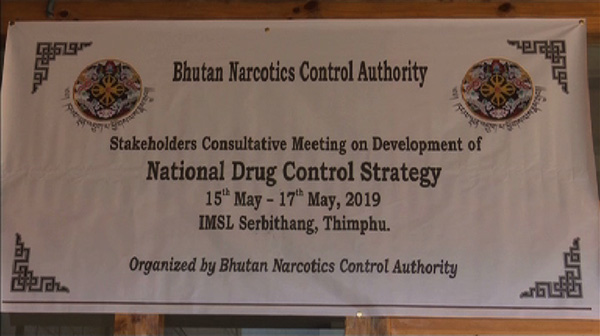 The Bhutan Narcotics Control Authority (BNCA) is in the process of developing a new National Drug Control Strategy. The strategy, according to the authority, will help reduce the incidents of drug abuse, illicit trafficking of narcotics drug, parenting tips and life skill development among others. As part of the initiative, a three-day workshop was held in the capital as well.
The Bhutan Narcotics Control Authority (BNCA) is in the process of developing a new National Drug Control Strategy. The strategy, according to the authority, will help reduce the incidents of drug abuse, illicit trafficking of narcotics drug, parenting tips and life skill development among others. As part of the initiative, a three-day workshop was held in the capital as well.
The strategy looks at both supplies as well as demand fronts of making the society drug free. On the supply side, it will be basically for law enforcement and on the demand side, it will look after three main components including prevention, treatment and rehabilitation and aftercare services.
“We do have a strategy developed some years back, but with time it’s important for us to develop a new one. We are trying to see if we can decentralise some of the activities like making the local government, the community more responsible for managing their own areas. We are also adding a number of new inspection methods, linking up with other agencies,” Phuntsho Wangdi, the Director General of BNCA, said.
As part of the strategy, the authority will look at providing awareness to all schools on the root causes of addiction. It will also explore ways to identify those students in substance abuse. Through this, the authority expects to provide early detection and render better help services.
“In this new strategy, what will happen is first and foremost we will equip the teachers and principal on how do you identify that somebody is into addiction and then once you identify, how to intervene,” Phuntsho Wangdi added.
“Because of substance use problem in the schools some students they have to forgo their studies. Now I think with the inclusion of the new amendment in the strategy, new points, and new strategy being developed I think it would also help our schools, help our youth in schools. I feel that it is in a way helping both school settings as well as different stakeholders,” Dawa Draba, the Sr. Counsellor of Dept. of Youths and Sports, said.
The BNCA expects to use this strategy for ten years. The office is developing the new strategy in collaboration with the RBP, BAFRA, department of trade, Customs, Department of Youth and Sports and, schools and colleges.








